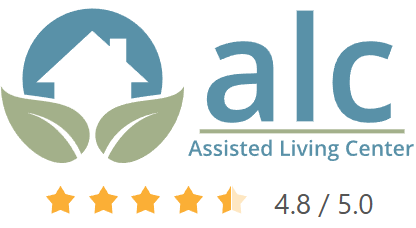On the one hand, a pet could help a person living alone feel less lonely, but on the other, taking care of a pet is a huge responsibility, especially when the owner is no longer independent enough to take care of themselves.

Whether it was your idea to get a furry friend for your aging parent, or they are the ones who are insisting on it, it’s important to think things through and put them into perspective. It is understandable why you may be skeptical or concerned about the decision and why you may want to give the idea a hard pass. Your head is probably full of questions.
Is pet ownership a sound next move for your senior loved one? How can you be certain if it will work out and they won’t change their mind later on? How can you be certain that you will not end up regretting the decision? Can pet ownership be integrated into homecare for seniors in Westwood and other areas across Los Angeles?
So what are you to do? Before you jump in the car and drive to the nearest animal shelter, here is what you should know.
What are the pros and cons of getting a pet?
While there are many factors to take into account when deciding whether to get a pet, what truly matters is being able to determine the pros and cons with precision and then decide if the pros outweigh the cons. For many people, if circumstances and finances allow, they do.
When a new pet arrives at a household, they become something like a family member. If that pet is a person’s sole companion, pet ownership can turn into an obsession. There is even a risk that they will prioritize the well-being of their pet over their own. In cases like that, the loss of the pet can have a devastating impact on the owner.
However, getting a pet can be such a rewarding experience that all these risks can easily be overlooked:
- So meaningful is the interaction between a person and their pet that it no longer matters that the dog wants to go for a walk at the crack of dawn or that the cat has scratched every piece of furniture in the house.
- Pets can have a therapeutic effect on their aging owners and help them regain the vim and vigor they had lost. There is evidence that older adults who own pets demonstrate better and healthier eating patterns and overall health.
- Additionally, a caregiver can also pitch in and help your aging loved one look after the pet.
- Seniors with pets may be more cooperative and more open to compromise.
How to choose a pet and what is the best pet for a senior?
Provided that you have made up your mind and decided to go through with the decision, the next step is to pick the pet based on the following criteria:
- Health and mobility: For seniors with limited mobility, a cat may be a better choice than a dog.
- Past experience with pet ownership: Lack of experience means a longer adjustment period.
- Ability to commit financially: Owning a pet can be expensive once vet bills are factored in.
- Age of the pet: House-trained senior pets vs. highly energetic puppies and kittens.
- The personality of the pet: The staff at the animal shelter can help you make the right decision.
- The pet’s health status: Aging pets may struggle with age-related health problems, which means taking care of such a pet will be more demanding and more expensive.
What is the easiest pet to take care of?
The following animals are considered to be low-maintenance pets:
- Hamsters
- Cats
- Goldfish
- Guinea pigs
- Sea Monkeys
- Snakes
- Birds
Is a senior pet a good choice for a senior?

Cats and dogs are considered to be senior after the age of seven, which means it won’t be long before that tiny pup or kitten needs special care, at which point things can become complicated. Senior pets may struggle with age-related health issues, which can make the situation even worse, especially among seniors struggling with rapidly deteriorating health themselves.
However, most seniors, senior pets, especially those adopted from an animal shelter, are the safest choice. Despite the challenges listed above, they are not typically overenergetic or overly mischievous. They have a lot of love to give and they can learn to adapt to a new home, as long as their new owner is patient enough to give them time.
Quality homecare in Westwood and the region
When your aging parent is left living alone in their Westwood Village home, you want to do everything in your power to help them lead a more fulfilling life, especially if you do not have the time to visit them on a regular basis. But we can help. We can share our experience to help you make an informed decision that will benefit your aging loved one. Contact us to find out more!








